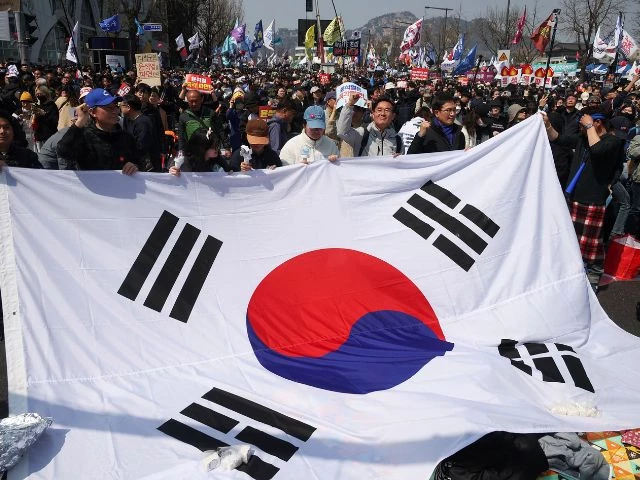Snap election set for June 3 in South Korea after President Yoon ousted
South Korean law mandates a presidential election within 60 days of an office becoming vacant.

South Korea will hold a snap presidential election on 3 June, following last week's removal of Yoon Suk-yeol from office over his brief imposition of martial law in December.
Acting President Han Duck-soo announced the decision on Tuesday, saying the date was chosen to allow political parties time to prepare and ensure efficient election operations.
Yoon, who was elected in 2022, was unanimously impeached by the Constitutional Court for violating his presidential duties. His declaration of martial law and deployment of troops to the National Assembly floor on 3 December triggered widespread outrage.
Yoon rescinded the order within hours, but the move evoked memories of past authoritarian regimes and deepened the political crisis.
South Korean law mandates a presidential election within 60 days of an office becoming vacant.
The upcoming vote is expected to reshape the country's political landscape and could significantly impact foreign relations, particularly with the United States.
Prime Minister Han, whose own impeachment was later overturned by the court, will remain acting president until a successor is elected.
Opposition leader Lee Jae-myung of the Democratic Party is currently the leading candidate, despite ongoing legal troubles. A recent Gallup Korea poll gave him 34% support, far ahead of conservative rivals.
Lee narrowly lost to Yoon in 2022 and is expected to resign as party leader and declare his candidacy this week.
Among conservative hopefuls, former Labour Minister Kim Moon-soo and lawmaker Ahn Cheol-soo have both announced their bids.
Kim, who resigned from his post on Tuesday, said he was motivated by a “sense of responsibility to resolve national difficulties”.
Ahn, who voted in favour of Yoon’s impeachment, promised to promote AI-led economic growth to counter the impact of US tariffs under President Donald Trump’s trade agenda.
South Korea’s economy has come under strain amid Trump’s recent 25% tariff on vehicle imports, with Trade Minister Cheong In-kyo now in Washington seeking exemptions.
Yoon, meanwhile, is set to face criminal charges for insurrection, with his trial due to begin on 14 April.
The upcoming election follows the impeachment of another conservative president, Park Geun-hye, in 2017.























COMMENTS
Comments are moderated and generally will be posted if they are on-topic and not abusive.
For more information, please see our Comments FAQ